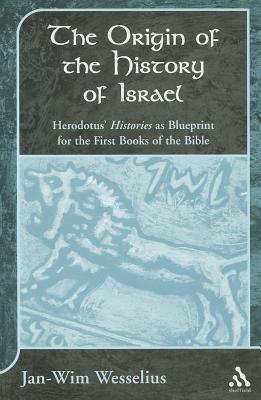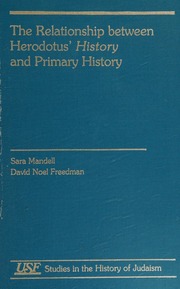Why the Hellenistic era …. Part 2a
In this post I will explain “my personal reason” for strongly suspecting a Hellenistic origin of the biblical literature — though I am sure I have come across the same ideas throughout different books and articles over the years. It follows on from #5 in the preceding post. When I wrote that I was expecting to follow up with detailed discussions from interpretations of the archaeological finds but have decided now to put that off for later.
I have more recently (subsequent to writing this post on the earlywritings forum) come across a comparable view that was expressed in a 2016 conference (my bolding):
As Jean Louis Ska suggests, The disappearance of a culture triggers off a certain type of literature. This is the case in Mesopotamia with Berossus and in Egypt with Manetho. They wrote their work in Hellenistic times when their civilizations’ glory already belonged to the past. The Torah could be – to some extent – an answer of the same type to the end of Jerusalem and the kingdom of Judah.
– Markl, Dominik, Jean-Pierre Sonnet, and Peter Dubovsk, eds. The Fall of Jerusalem and the Rise of the Torah. Tübingen: Mohr Siebeck, 2016. p. 6
Russell Gmirkin, it should be noted, published evidence that pointed to both Berossus and Manetho being sources for parts of the Penteuch.
My “personal vibe” that is in sync with the Hellenistic era is reflection on “the nature of the biblical literature itself”. The Primary History [i.e. Genesis to 2 Kings] is not the kind of literature that arises sui generis from a vacuum. One expects to see antecedents over time that lead to that kind of work. And the closest antecedents we find are in the Greek literature, not in that of the SyriaMesopotamian regions. Assyrian vassal treaties, the epics of Gilgamesh, of Baal, and so forth, simply fall short by comparison.
But what kind of society produces that kind of literature? It takes more than a scribal elite responsible for administrative and trade records, or even engaged in cultic verses and prayers and spells for cures, etc. The kind of literature in our Bibles required reasonably prosperous and complex societies with a literate class that engaged with the kinds of stories and ideas that had relevance to their class, ethnic and regional identities. They had to have a reasonably widespread audience to engage with those ideas and stories and whose interest or vulnerabilities or needs encouraged their literary development. The social groups must have been somewhat extensive and complex because of the various competing and related ideas found in that literature.
In other words we are talking about fairly advanced societies in economic growth and social complexity, and who also have comparable antecedent literature.
The archaeological record does point to some kind of growth of Jerusalem and surrounds in the eighth and seventh centuries, but I am not sure it really reaches the kind of level that Finkelstein and Silberman seemed to think was adequate for a “renaissance literary activity”. Besides, what kinds of antecedents were available at or up to that time to mushroom into what we find in the Bible?
The Persian era is by all accounts that I have seen in relative decline. Persian “liberal” rule that allowed Judeans and Samarians to do their own thing is more easily understood as administrative neglect, not caring at all about their development — only collecting levees for the army and taxes for the king. (Witness the Xenophon’s ability to march his Greek army untouched through the empire!)
The economic revival, with its related social growth in complexity and size, came with the arrival of the Greeks. So did the antecedent literature.
Herodotus’s Histories has a remarkably similar structure to the Primary History: opening with world history, having a close look at Egypt as a follow up, and finally getting down to the narrow view of the conflict between two powers — AND all told within the framework of a theological interest: the lesson of the deciding hand of the god through his earthly sanctuary. And all told in a series of books in prose, both frequently with competing accounts of the same event.

I am not denying the obvious differences when saying that. What I’m trying to do is to draw attention to the “equally obvious” similarities. Did those similarities really emerge independently? Did the Hebrew literature really inspire that of the Greeks? Were the Judeans and Samarians in the poverty-stricken, underdeveloped Persian era really hosting a literate class devouring Greek literature? (I am on record as deploring argument by rhetorical questions so I will hasten to add that those questions are more than rhetorical: they represent a series of expectations that we must propose with hypotheses other than the Hellenistic era one.)
And then we have the ideological content of the literature. How do we explain the sudden introduction of stories of Exodus, Joshua’s Conquest, Judges, David and Solomon’s united kingdom and empire, if those — as the archaeological record tells us — never happened?
At this point it is worth looking at the propaganda use the biblical works were put to in the Hasmonean period. Were not the Hasmoneans seeking to justify their conquests by appeals to a historical heritage? In a time of Greek conquest do we not expect indigenous populations to at least sometimes seek redress by counter-narratives that put themselves in the positions of the god-blessed and ultimately greater powers? Again, these are more than rhetorical questions.
As for the divisions found even within the literature — the Samarian/Mount Gerizim point of view versus that of Jerusalem — have not scholars long since identified these differences underlying the multiple points of view (and sometimes outright conflict) within the biblical literature?
Mention has been made of Gmirkin in this thread. Before I read Gmirkin’s book I was prompted to read Plato’s Laws (as well as, again, Timaeus and Crito) by another scholar and was completely thrown back in my chair when I saw (and wondered how I had not seen it before) the striking similarities between Plato and the Pentateuch’s laws. Oh of course all those sacrifices and cultic rituals are of Levantine/Syrian/Canaanite origin, but the Pentateuch is a lot more than those.
The creation, the merging of humans and gods, the flood and annihilation, the wandering of the new generation, the coming together ….. and so forth. And then the laws about holiness, godliness, sacred feasts, marriage and sexuality, the judges and tribes, etc etc etc etc : Did Plato really twig to all of that from his reading of the Pentateuch? (At least one scholar has addressed the relationship of a scene in Plato’s Symposium with the temptation of Adam and Eve in the Garden of Eden.)
And further yet — how many scholars have noticed the similarities between the biblical Yahweh and the Greek Dionysus? I have read the comparisons a number of times. Surely pre-Hellenistic Yahwism was distinctively Levantine, with no appreciable differences between the Yahwism of Samaria, Judea, Negev, Canaan, Syria…. So what gave him the Greek overlay in the Bible?
Okay — these are my generally subjective responses to how I read the literature of the OT with my knowledge of Greek literature in mind. I have not presented a systematic argument, I know. But for what it’s worth, I thought it might be of some point to note how I have come to read the literatures of the Hebrews and Greeks and the conclusions that seem to present themselves to me as a result.
by neilgodfrey » Tue Feb 20, 2024 4:29 pm
To read the original post in context and to see Stephen Goranson’s critical responses ….

